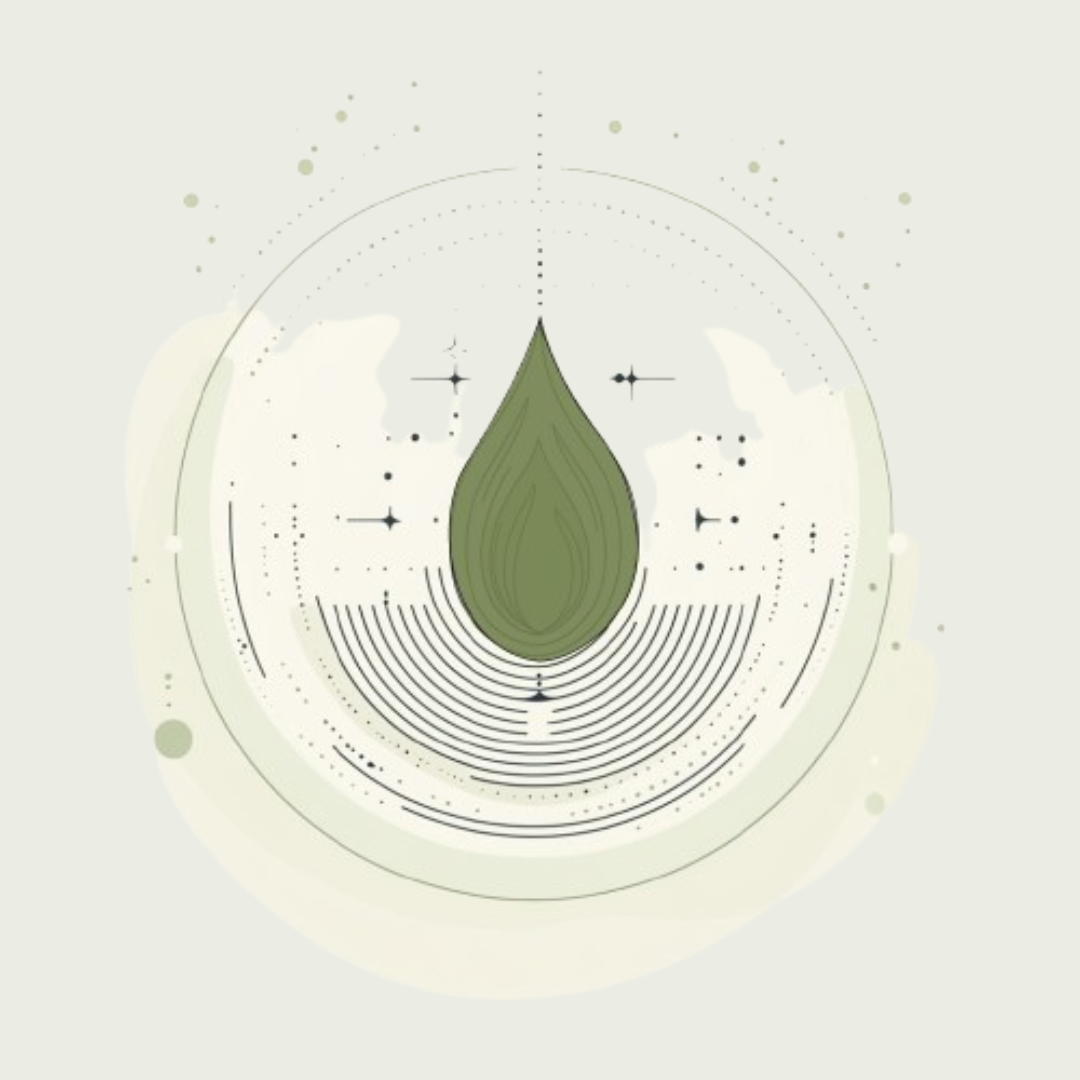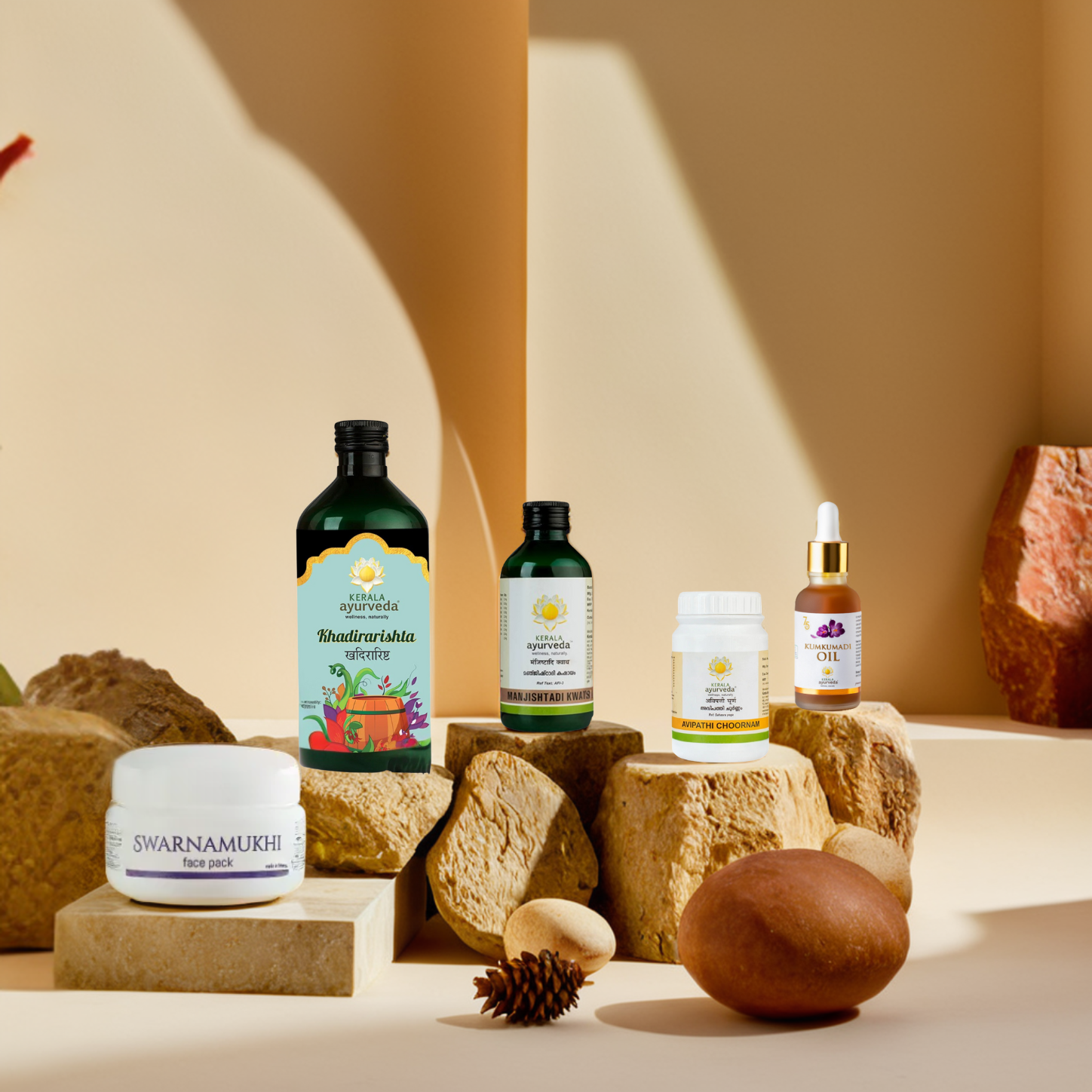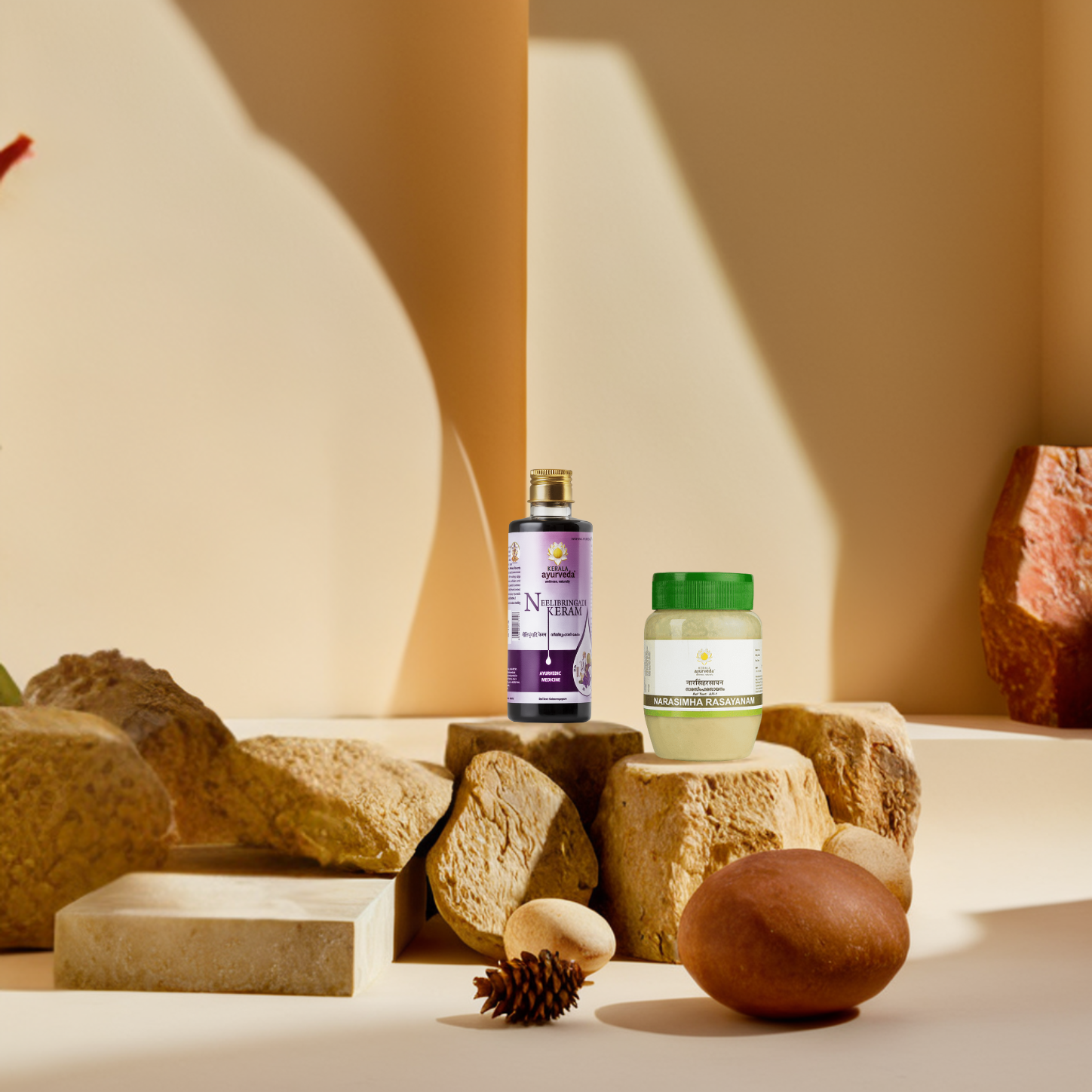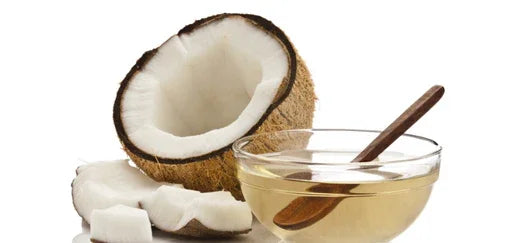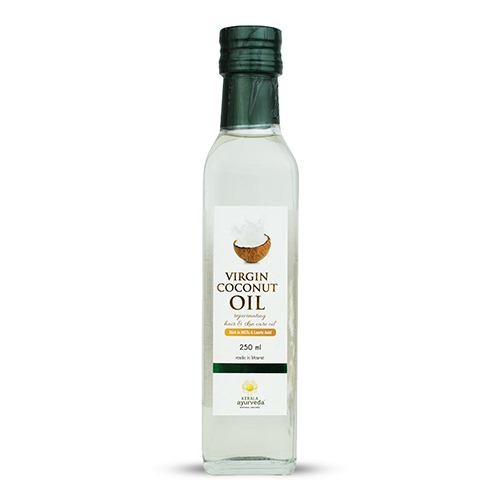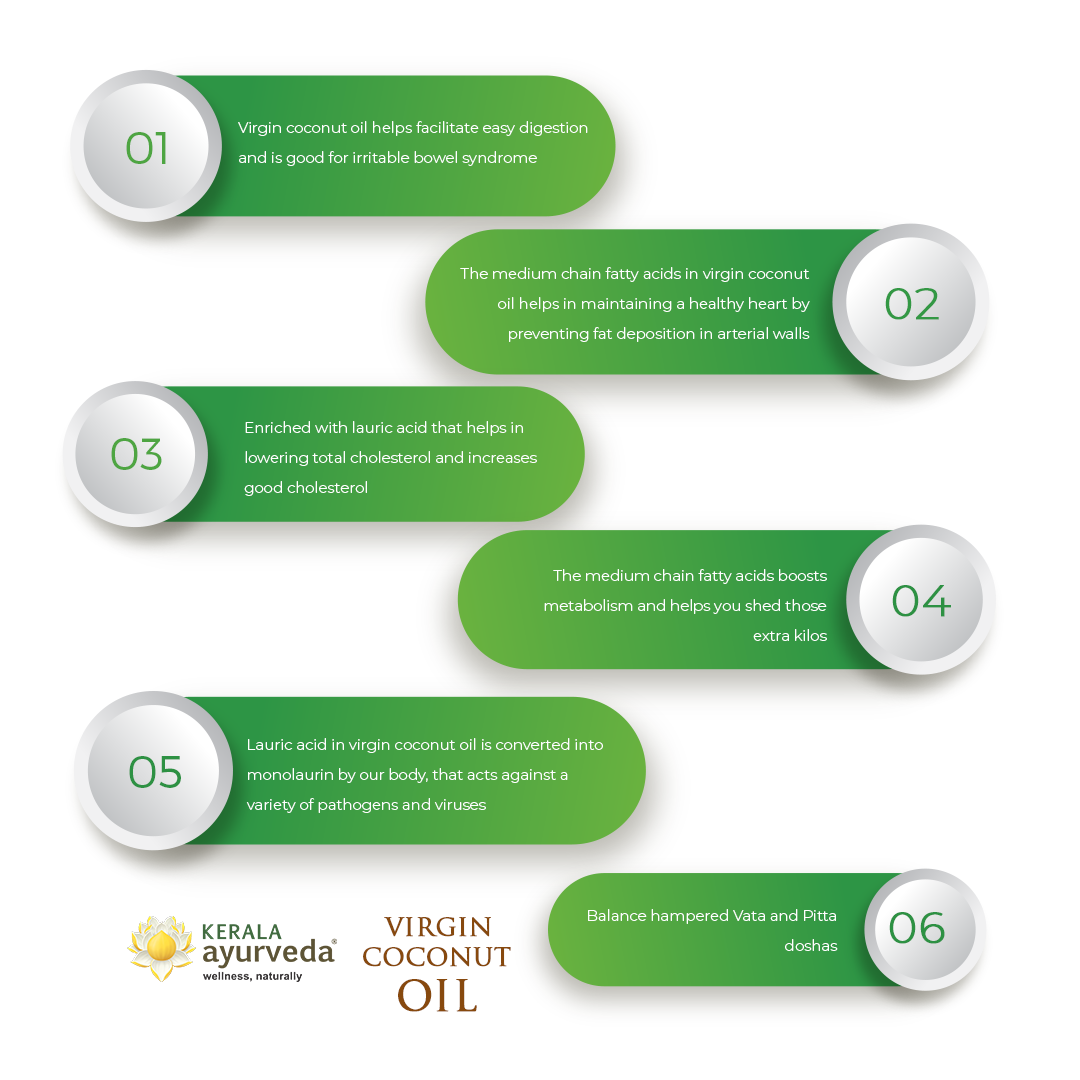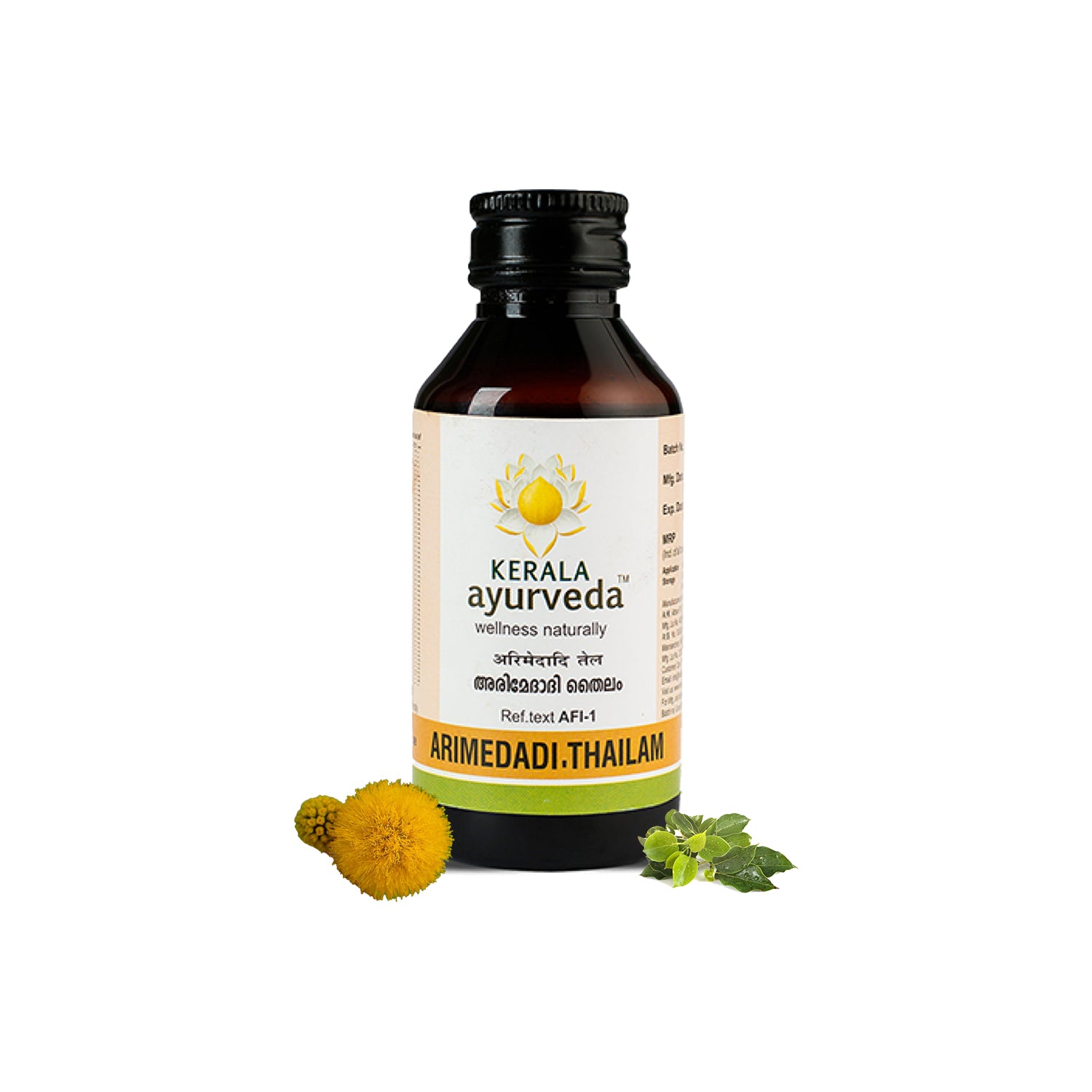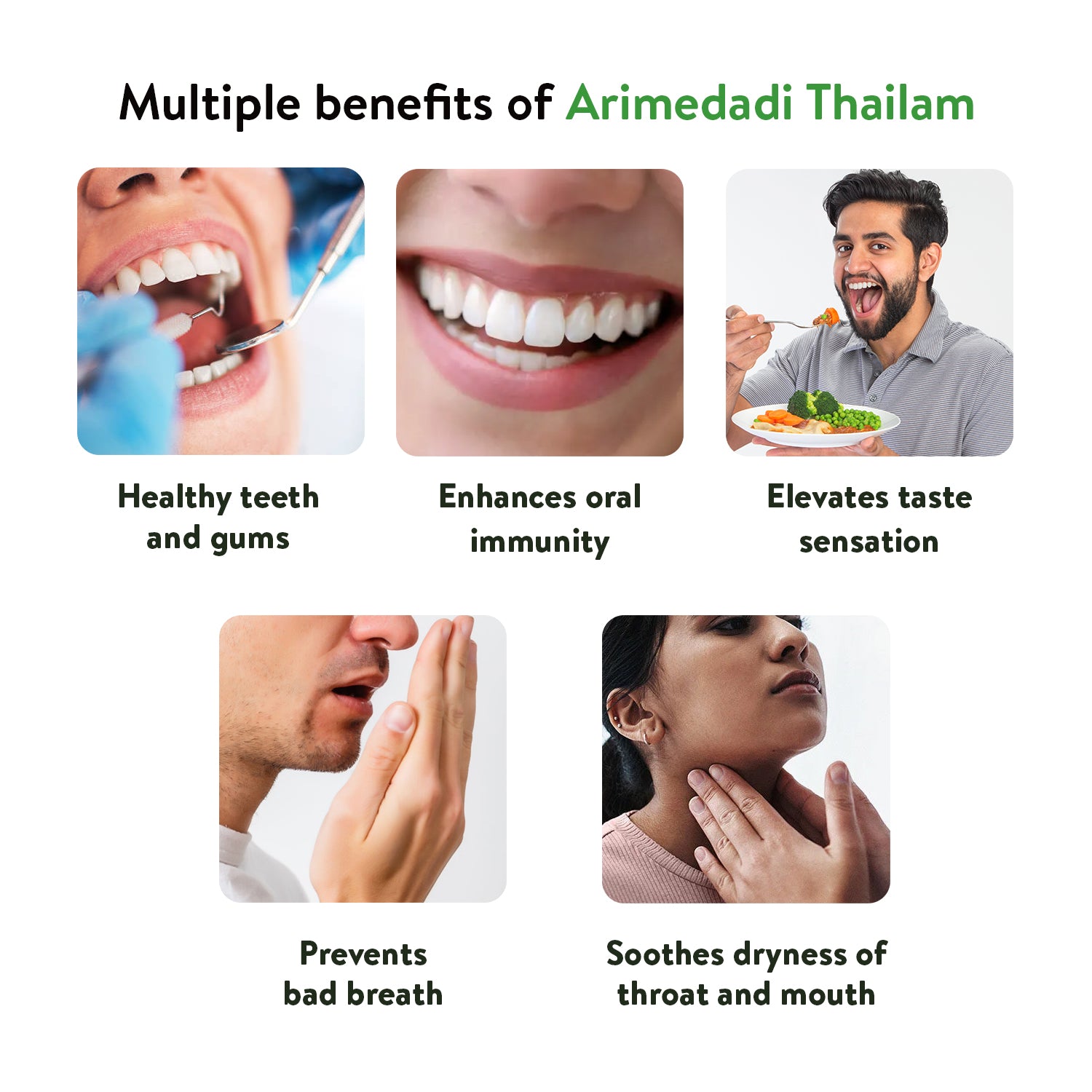Highlights
Are you taking proper measures to maintain your oral hygiene?
Even after proper oral hygiene, do you still face dental troubles? Brushed your teeth - checked
Flossed your teeth - checked
Scraped your tongue - checked
Oil pulling – wait, what's that?
Maybe you have heard of oil pulling but don't know how to do it properly, or you stumbled upon this blog post by accident, and now you are psyched up to know more.
Oil pulling might sound typically modern, but this very concept of Oil pulling was first mentioned thousands of years ago in Authentic classical Ayurveda texts. Oil pulling, also known as gandusha kriya is mentioned under Dinacharya, a set of regimen that must be followed daily, recommended by Ayurveda – for clearing bacteria from your mouth and promoting oral health and hygiene. Oil pulling is performed by simply swishing the oil around your teeth, tongue, and gums in uniform motion in a synchronized manner just like a regular mouthwash. Which oil? We'll talk about that later in this blog.
What Happens During Oil Pulling Therapy?
Mouth is the starting point of your gastrointestinal Tract and leads to the stomach and other organs. Your mouth hosts over 600 species of bacteria. While some are good bacteria and make up the healthy microbiome in your mouth, the rest are detrimental to oral health and cause issues like tooth decay, bad breath, bleeding gums, etc. It is thus important to keep dental hygiene in check by flushing out all the detrimental bacteria and keeping the oral cavity safe.
Oil pulling helps you get rid of these bacteria via a simple phenomenon. The unicellular bacteria present in the oral cavity is enclosed by a lipid membrane that sticks to the lipid structure of the oil. When you swish the oil around your mouth, these bacteria detach from the soft tissues, attach to the oil, and eventually get flushed out when you spit the oil. The process is like how detergent removes dirt molecules from clothes.
When to do Oil Pulling?
Should you do oil pulling before or after brushing? According to Ayurveda, It is recommended to perform oil pulling before brushing your teeth and scraping your tongue. If you had to choose between oil pulling at night and morning, it should always be done in the morning on an empty stomach. Only while you pull oil on an empty stomach, is the maximum enzyme-rich saliva released, which helps flush out toxins and bacteria from the mouth.
Best Oils for Oil Pulling
Coconut Oil
Coconut oil possesses excellent antimicrobial properties because of its high lauric acid content, making it a popular choice for oil-pulling therapy. It's readily available in every part of the country. Coconut oil mouth rinse is also mentioned in Ayurvedic classics as a preventive measure for many gum disorders. Research also suggests that coconut oil is beneficial in reducing inflammation. Gargling with coconut oil also effectively reduces the symptoms of burning sensation within the oral cavity. Natural antioxidants present in coconut oil also help to whiten teeth. Oil pulling with virgin coconut oil is highly acclaimed for its pleasant taste and benefits.
Arimedadi Thailam
Fortified with a wide range of herbs and oils for oral health benefits, it is the best oil for oil pulling. Arimedadi thailam is specially indicated for all disorders relating to the oral cavity, including stomatitis, gingivitis, pain due to dental caries and others. Oil pulling is also highly effective in treating primitive dental cavities. It removes harmful bacteria from the mouth's soft tissues and prevents bleeding gums, tooth decay, bad breath, and hypersensitivity in teeth. Oil pulling for mouth ulcer is one key feature of Arimedadi thailam, according to Ashtanga Hridaya Uttarasthana. It is available at the Kerala Ayurveda store.
Sesame Oil

The king of herbal oils, sesame oil is one of the ideal choices for oil pulling. It has a kapha scraping property, which helps remove plaque deposition and eliminates halitosis or bad breath. Sesame oil has tikshna properties or penetrating action that can potentially curb Twakdosha or skin disorders. Oil pulling with sesame oil is also indicated in cases of mouth ulcers. It helps eliminate bad breath and prevent tooth decay and bleeding gum. Swishing with sesame oil every day can also strengthen your jaw and gums. Traditionally, sesame oil is used to pull oil in Dinacharya.
How to do oil pulling
Oil pulling offers maximum benefits before brushing your teeth and on an empty stomach. Here are simple instructions on how to do it the right way.
- Put one tablespoon of oil in your mouth.
- Swish the oil around in your mouth for 15 minutes. Make sure to cover all nooks and corners of your mouth while gargling.
- For beginners, 15 minutes can be difficult, so start with 5 minutes and gradually increase the time to 15 minutes.
- Spit the oil; do not swallow.
- According to Ayurveda, till you feel your mouth heavy.
- Sit back and allow some time to rebalance your oral microbiome
- Use lukewarm water to rinse your mouth
- Avoid eating anything immediately after oil pulling
Benefits of Oil Pulling
Let's look at some of the oil-pulling benefits:
Promotes Healthy Teeth and Gums
Maintaining a healthy oral microbiome is crucial for your teeth and gum health. One of the most common culprits of tooth decay is Streptococcus mutans, a type of microorganism in your mouth. Daily oil pulling for 10-15 minutes can help reduce S. mutans count in your mouth and prevent tooth problems. Oil helps to detach the bacteria from the inner lining of the mouth, and it gets expelled by spitting. After oil pulling, the mouth is left with a slightly oily appearance that also promotes tissue regeneration. Unlike flossing, oil pulling does not hamper gum health. Instead, it helps to restore the normal pH of the oral cavity.
Promotes Fresh Breath
Bad breath not only embarrasses you, but it can also affect your relationships. Bad breath is caused by sulfur-producing bacteria that thrive in microscopic grooves on the tongue and back of the throat. The hydrophobic action of oil attracts all lipophilic bacteria in the mouth, giving a fresh breath after each use. Another benefit of oil pulling is the ability to move to areas ordinarily inaccessible through brushing or flossing. Oil pulling and gargling help flush these bacteria out of the mouth, leaving you with fresh, odorless breath.
Supports Detoxification
You can find evidence of the correlation between oral hygiene and overall well-being. It is said the state of your mouth indicates the state of your gut. The harmful bacteria that thrive in your mouth eventually enter your body with food, causing health complications and even life-threatening inflammation in the cardiac system. Chronic bacterial infections are often transmitted from the mouth to the gut due to our carelessness. Typhoid, cholera, etc, are common bacterial diseases that enter the body through the mouth. A simple Ayurvedic gandusha with oil can help detoxify the mouth and thus protect you.
Daily oil pulling helps eliminate harmful bacteria from your mouth, assisting your body's natural detoxification process and enhancing the quality of saliva production.
Promotes Healthy Sinus
Although there are limited clinical studies in this area, anecdotal evidence shows several benefits of oil pulling for sinus health. The sinus is also connected to the oral cavity through the oral opening of the pharynx behind the throat. Common minute connections between all these structures are also the pathway of bacterial transmission. The same bacteria in the oral cavity can traverse up to the sinus through physiological connections, resulting in serious complications. The same bacteria located in the oracle cavity can traverse up to the sinus through physiological connections resulting in serious complications. Since sinuses are closely linked to the oral cavity, maintaining a healthy oral microbiome can help prevent sinus infections caused by bacteria.
May help prevent cavities
Cavity is the most common complaint that Leads to tooth decay. Poor oral hygiene accumulation of sugar or food debris on the tooth surface attracts bacteria, which leads to the formation of cavities due to erosion of enamel.
Most often, bacteria, saliva and food debris form a coating over the surface of the teeth called plague, which is also the cause of cavity formation. Since oil pulling reduces the accumulation of oral bacteria, and as the oil is more efficient in passing through the tight teeth junctions, the accumulation of this bed is eliminated. Thus, the teeth are protected from having caries.
Things to consider before Oil Pulling
Some people may be allergic to one of the oils prominently used for oil pulling. Therefore, conducting a patch test to rule out the possibility of oil intolerance is crucial. You may also consult your ayurvedic health care provider to find the right oil that matches your condition and constitution.
Apart from that, no known risks are associated with the oil-pulling method. Also, it should be noted that oil pulling cannot substitute brushing and flossing your teeth; this technique must be used in a supplementary fashion to promote a healthy oral microbiome and eliminate oral toxins.
OIL PULLING SIDE EFFECTS
Although oil pulling is an effective and efficient therapy for gums, teeth, and oral cavity, there are a few side effects of excessive oil pulling and they are:
- Sore Jaw or tightness of the jaw due to excessive movement
- Excessive thirst due to gargling with an excessive quantity of fluid
- Muscle stiffness may occur due to prolonged contraction of the muscle
- Temporary Loss of sensation of taste
- Nausea and vomiting are commonly seen in people not used to gargling oil. It is a reflex mechanism due to having a large quantity of oily substances in the mouth.
According to Ayurveda, these conditions occur due to improper oil pulling. While mentioning Ayurvedic treatment of teeth and gums, Acharya also mentions the remedies for regaining health after excessive oil pulling.
- Washing the mouth, neck, and jaw with warm water added with a pinch of pink salt is an effective method to receive stiffness and sore jaw
- To eliminate loss of taste sensation there are various formulations mentioned like Sitopaladi churna, or Talisapatradi churna for local oral application
- Excessive thirst can be compensated by drinking water infused with dry grapes or dry dates.
- To avoid nausea and vomiting, it is ideal to start using a smaller quantity of oil. You may begin with a few teaspoons and gradually increase to a mouthful of oil.
Expert Tip
Experts suggest incorporating oil pulling into your morning ritual and staying consistent for at least 4-6 weeks to get noticeable results. Keeping the oil in your mouth for a long time might cause slight discomfort, but regular practice will make it easier. Avoid swishing the oil violently or harshly to reduce oral tension and pain.
When choosing the oil, look into its intrinsic properties to know what to expect. For instance, sesame oil is best if your goal is to control bad breath. But coconut oil does the job if you want to maintain a healthy oral microbiome. However, you can have the best of both worlds with Arimedadi Thailam, offered by Kerala Ayurveda. This traditional medicine has the goodness of many herbs, including Triphala, cloves, Yasti, Manjista, Lodra, and others, which help enhance gum health and overall well-being, including halitosis.
Key Takeaways
- Oil pulling is an Ayurveda-recommended morning ritual that helps remove bacteria from your mouth and prevent bad breath, tooth decay, and gum problems.
- Oil pulling is done by swishing the oil around the mouth for 15-20 minutes, followed by a quick rinse with lukewarm water.
- Some of the best oils you can use include coconut, sesame, and Arimedadi.
- Oil pulling should be done on an empty stomach in the morning, immediately before brushing and flossing your teeth.
- Benefits of oil pulling include fresh breath, healthy teeth and gums, a balanced oral microbiome, and a healthy palate.


